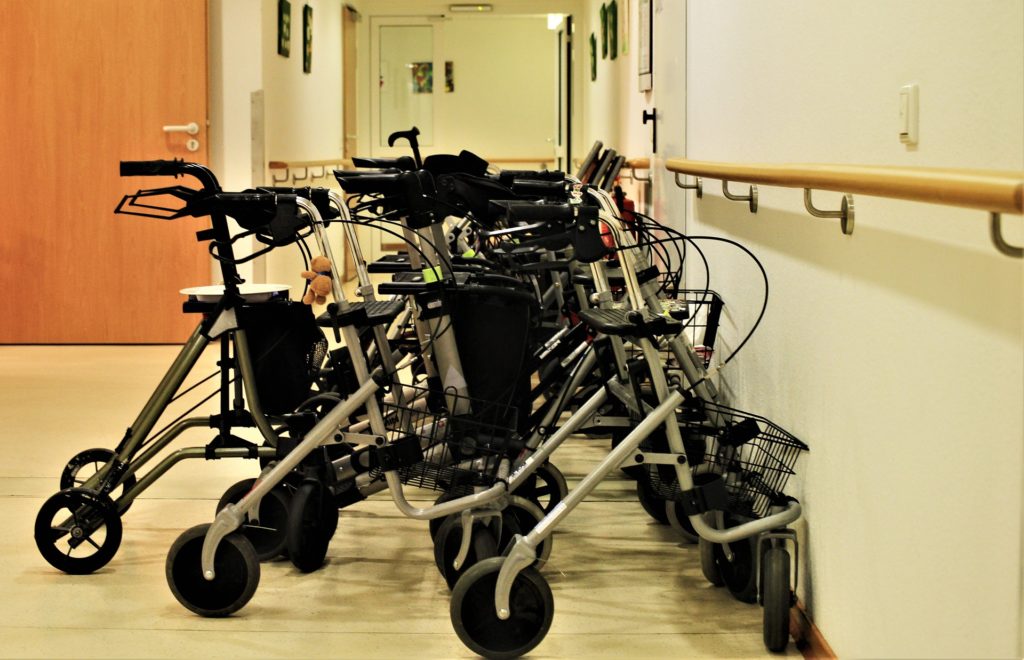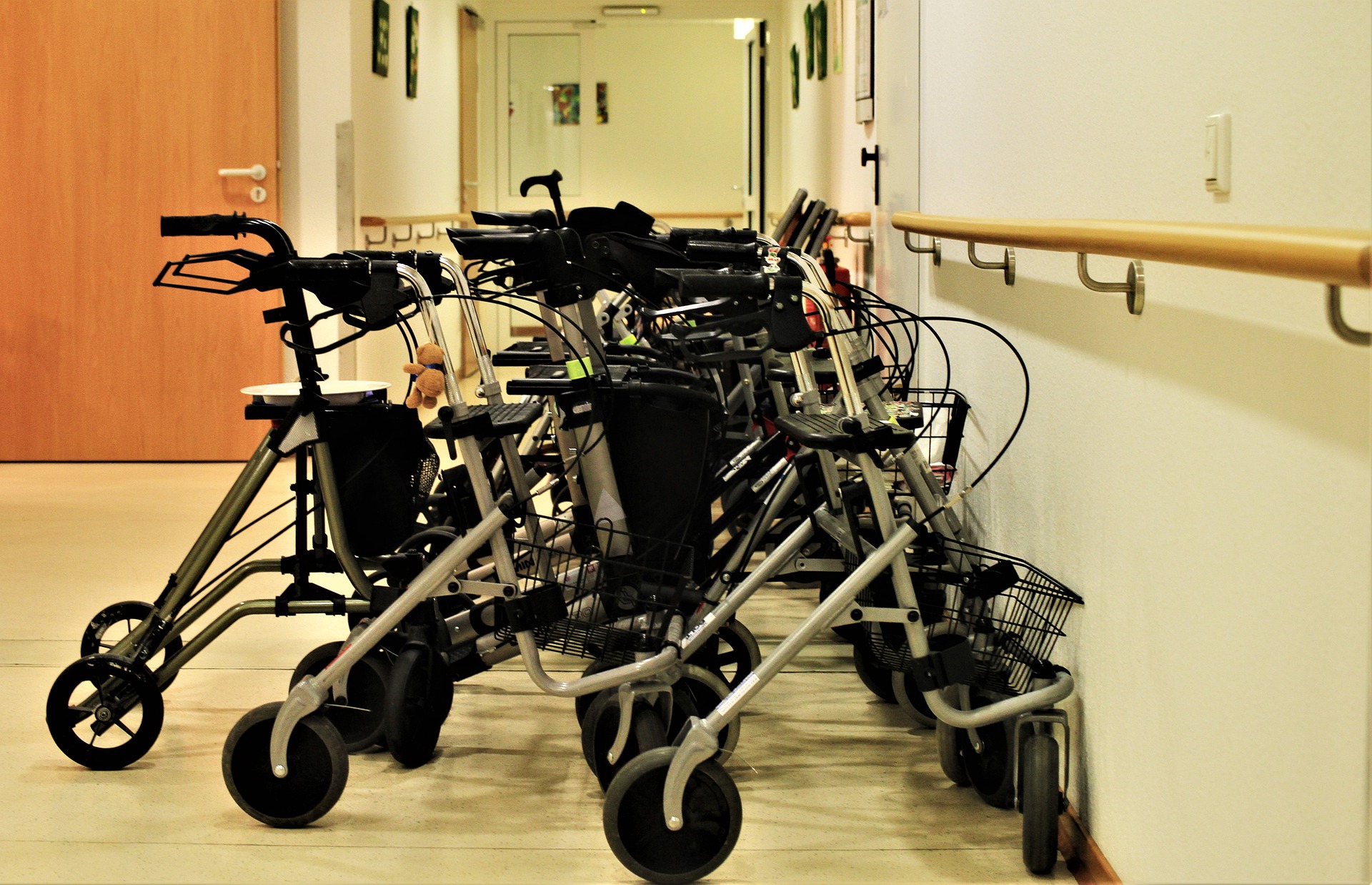Should you disinherit your spouse and leave assets to your children to protect money from nursing home costs? It is common for estate planners to write wills and create beneficiary designations that minimize the inheritance of a spouse in a nursing home, but there are factors to consider before doing so.
Elective Share. In Pennsylvania you are generally not able to completely disinherit your spouse without their consent. When applying for Medicaid long-term care benefits, the surviving spouse will in most cases be required by the Pennsylvania Department of Human Services to claim what is called the “elective share” of assets. Although the topic of the elective share is more complicated than this, it is easiest to explain the elective share as being the disinherited surviving spouse’s right to claim 1/3 of most assets of the first to die, no matter what the will or beneficiary designations say. In most cases up to 2/3 can go to other beneficiaries without the imposition of a Medicaid transfer penalty, after the elective share is considered.
Certain Death Transfers Can Avoid the Normal Medicaid Transfer Penalty Rules. The general rule is that you cannot make large lifetime gifts to non-disabled children within 5 years of a Medicaid application without incurring a transfer penalty. The transfer penalty is a period of ineligibility for benefits that roughly approximates the amount of nursing home care the gifted assets would have covered. However, if the reason for the asset transfer to your children is not because you wrote a check or signed the deed to your house over, but instead because you died and they inherited the money or house, the transfer penalty is not imposed unless your surviving spouse applying for Medicaid benefits did not claim the elective share if doing so would have resulted in the surviving spouse receiving more assets. For this reason, some planners take steps to minimize the assets passing to a surviving spouse who is in a nursing home, or who might need nursing home care after the first to die.
 Might your Surviving Spouse Need the Money? Being disinherited may not be in your spouse’s best interests, for example, if they would prefer to pay for private care to stay at home and out of a nursing home. The more money one has the more options he or she has in terms of access to quality healthcare, and nowhere is this more of a reality than when it comes to securing long-term care. The goal of accessing quality long-term care when needed and the goal of protecting assets for your children are often competing objectives. If the surviving spouse has no or few assets after the first to die, they may not be able to get admitted quickly to the nursing home of choice or gain entry to privately paid assisted living care. If your spouse is already in a quality nursing home and eligible for Medicaid long-term care benefits, then an inheritance will result in the discontinuance of Medicaid benefits, so in that case it tends to be advisable to minimize the inheritance of the spouse in the nursing home. That said, if the spouse is not in the best nursing home and would want to go elsewhere, an inheritance could be the key money needed to make that move.
Might your Surviving Spouse Need the Money? Being disinherited may not be in your spouse’s best interests, for example, if they would prefer to pay for private care to stay at home and out of a nursing home. The more money one has the more options he or she has in terms of access to quality healthcare, and nowhere is this more of a reality than when it comes to securing long-term care. The goal of accessing quality long-term care when needed and the goal of protecting assets for your children are often competing objectives. If the surviving spouse has no or few assets after the first to die, they may not be able to get admitted quickly to the nursing home of choice or gain entry to privately paid assisted living care. If your spouse is already in a quality nursing home and eligible for Medicaid long-term care benefits, then an inheritance will result in the discontinuance of Medicaid benefits, so in that case it tends to be advisable to minimize the inheritance of the spouse in the nursing home. That said, if the spouse is not in the best nursing home and would want to go elsewhere, an inheritance could be the key money needed to make that move.
Will your Children Spend the Money or Would they Return it if Needed? You may leave assets to the children instead of your surviving spouse believing the children would use it for their parent’s care if needed. Almost like a law of physics, money tends to flow downstream from parents to children, and does not often go back upstream so easily. There are exceptions, and we do see children return money to parents when needed, or even support their parents financially if they can, but you need to consider the risk that children may spend the money or be unable to give it back through no fault of their own. I often use the example of the child who received money from a parent, died, and left the money to the Society for the Prevention of Cruelty to Animals. The child was a good person, loved puppies, but the money is gone. There is a potentially better way.
Testamentary Supplemental Needs Trust. An alternative approach to disinheriting a spouse to avoid losing the money long-term care costs is to instead include your surviving spouse in the estate plan with a testamentary supplemental needs trust for the benefit of your surviving spouse. The money not required to go to your spouse as part of the elective share can be held in a testamentary trust that supplements and does not supplant Medicaid long-term care benefits. Including this trust in your estate plan sets up the possibility of protecting some assets for your children while also benefiting the surviving spouse in a way that does not interfere with government benefits that pay for long-term care. The testamentary supplemental needs trust would not be subject to the Medical Assistance Estate Recovery Program payback requirements since it would be non-probate in nature, and Pennsylvania’s current estate recovery program only applies to probate assets. Yes, trusts cost legal fees to create and maintain, but it might be worth it depending on your circumstances.
Think it Over and Secure Professional Advice. Our office helps with estate planning in situations where one or both spouses may need long-term care. It is important for the couple to discuss these matters before the need for long-term care arises. Do not disinherit your spouse without speaking with an elder law attorney. Talk it over with your spouse, other trusted family members, and professionals such as your accountant or financial advisor.
Conclusion. Some of our clients wish to do all they can to protect some assets for their children, and other clients feel strongly that the couples’ assets should be used each for the other, and the children can inherit what is left, if anything. The testamentary supplemental needs trust can present a balancing of objectives, but some of our clients prefer not to have a trust. Call today and we can discuss your preferences and the best plan for your situation.
Disclaimer: We recommend that you receive ongoing legal advice from an elder law attorney before attempting to navigate the Medicaid application process. If you wish to secure our services, please contact us.




